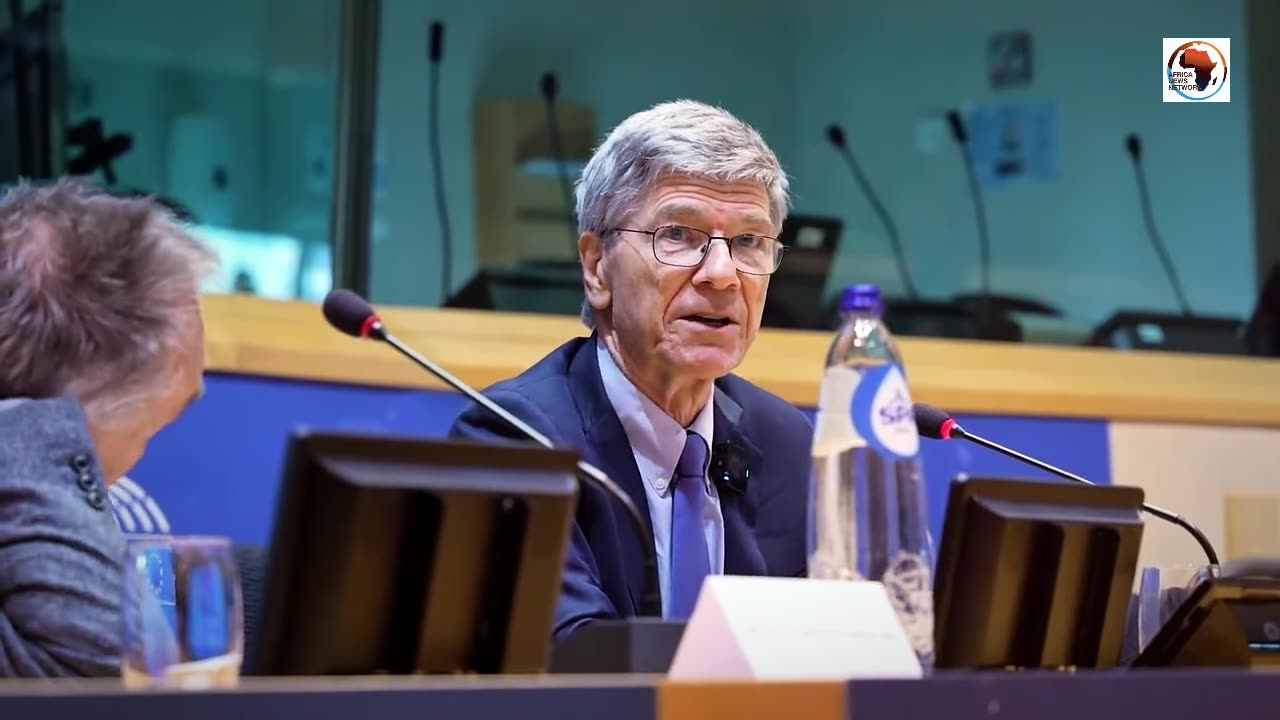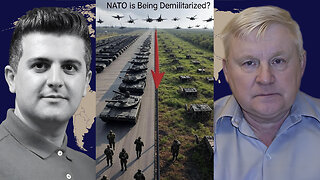Premium Only Content

Jeffrey Sachs' Explosive Address at the EU Parliament Sends Shockwaves Across Europe
Summary contributed by
https://www.youtube.com/@TheRetrospective/videos
Here are 12 main points from his speech, accompanied by evaluations:
1. Critique of U.S. Unilateralism: Sachs argued that post-Cold War U.S. foreign policy has been characterized by unilateral actions, often disregarding international norms.
• Evaluation: While the U.S. has engaged in unilateral actions, this perspective may overlook instances where multilateral efforts were pursued.
2. NATO Expansion as a Provocation: He suggested that NATO’s eastward expansion provoked Russia, contributing to the Ukraine conflict.
• Evaluation: This aligns with Russian narratives. However, it can be seen as an appeal to consequence, implying that NATO’s actions justify Russia’s response.
3. Advocacy for European Strategic Autonomy: Sachs urged Europe to develop an independent foreign policy, reducing reliance on U.S. directives.
• Evaluation: While promoting autonomy, this stance may underestimate the complexities of transatlantic alliances and shared democratic values.
4. Criticism of Baltic States’ Policies: He criticized the Baltic nations for “Russophobia,” implying their policies exacerbate tensions.
• Evaluation: Labeling legitimate security concerns as “Russophobia” could be a straw man fallacy, misrepresenting their positions.
5. Highlighting U.S. Hypocrisy: Sachs pointed out perceived U.S. double standards in international relations, such as condemning some invasions while supporting others.
• Evaluation: While there may be inconsistencies, this argument could be an appeal to hypocrisy (tu quoque), diverting attention from Russia’s actions.
6. Economic Interests Driving Policy: He claimed that U.S. foreign policy is often driven by economic interests, particularly in the defense sector.
• Evaluation: This perspective might oversimplify complex geopolitical strategies, potentially committing a hasty generalization.
7. Call for Immediate Ceasefire: Sachs advocated for an immediate ceasefire in Ukraine and the start of peace negotiations.
• Evaluation: While peace is desirable, this approach may overlook the necessity of addressing underlying issues, potentially leading to a false dilemma by suggesting immediate talks as the only solution.
8. Critique of Sanctions: He argued that sanctions against Russia harm global economies and are ineffective in changing behavior.
• Evaluation: This aligns with Russian interests and might be an appeal to consequences, focusing on economic impacts without considering the ethical stance against aggression.
9. Emphasis on Diplomacy: Sachs stressed the importance of diplomacy over military solutions in resolving conflicts.
• Evaluation: While diplomacy is crucial, this view may neglect scenarios where defensive actions are necessary, potentially leading to a false dichotomy between diplomacy and defense.
10. Warning Against Escalation: He cautioned that continued military support to Ukraine could escalate the conflict into a broader war.
• Evaluation: This could be seen as an appeal to fear, emphasizing worst-case scenarios without acknowledging deterrence benefits.
11. Questioning Media Narratives: Sachs suggested that Western media often presents a biased view of the Ukraine conflict.
• Evaluation: While media bias exists, this claim could be a red herring, diverting attention from the core issues of the conflict.
12. Proposal for Neutral Ukraine: He proposed that Ukraine adopt a neutral status to serve as a buffer between NATO and Russia.
• Evaluation: This recommendation aligns with Russian interests and might ignore Ukraine’s sovereignty and right to self-determination, potentially committing a false cause fallacy by oversimplifying the conflict’s roots.
In summary, while Professor Sachs’ speech offers a perspective emphasizing diplomacy and caution, several points reflect narratives favorable to Russia and contain potential logical fallacies or biases.
The Africa News Network
https://www.youtube.com/watch?v=ZUbBU0OqCgE
-
 LIVE
LIVE
GritsGG
23 hours ago36 Hour Stream! Most Wins 3420+ 🧠
7,267 watching -
 57:18
57:18
Dialogue works
1 day ago $0.18 earnedAndrei Martyanov: NATO is being demilitarized
100K16 -
 LIVE
LIVE
FyrBorne
10 hours ago🔴Warzone M&K Sniping: Sniping Challenges
346 watching -
 11:18
11:18
Dr Disrespect
1 day agoDr Disrespect: THE BEST AND WORST OF GAMESCOM 2025
79.9K13 -
 2:08:25
2:08:25
Side Scrollers Podcast
20 hours agoEXCLUSIVE: Marty O’Donnell BREAKS SILENCE On Bungie Drama + Kotaku Hypocrisy + MORE | Side Scrollers
24.6K3 -
 LIVE
LIVE
Wahzdee
3 hours agoBack on BF2042 – Which Sniper Is Actually Worth It?
44 watching -
 2:31:49
2:31:49
MattMorseTV
20 hours ago $0.63 earned🔴Trump's Oval Office BOMBSHELL.🔴
33.1K47 -
 25:14
25:14
GritsGG
16 hours agoRank 1 Player Spectates Casual Solos!
18.9K -
 LIVE
LIVE
Lofi Girl
2 years agoSynthwave Radio 🌌 - beats to chill/game to
561 watching -
 4:33:40
4:33:40
FreshandFit
11 hours agoAfter Hours w/ Girls
252K135